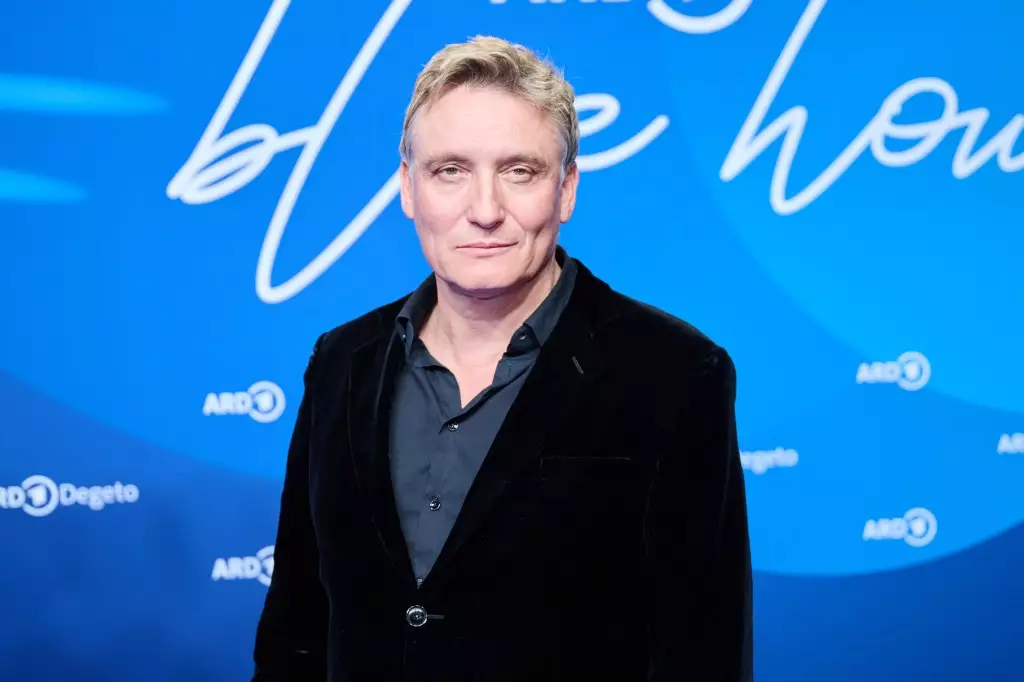Oliver Masucci, known for his compelling performances, found himself at the intersection of art and real-world turmoil while filming for the Israeli series *The German*. The show chronicles the perilous hunt for the infamous Nazi war criminal, Josef Mengele. However, it wasn’t just the heavy subject matter that weighed on Masucci during production; he was also grappling with the Israel-Hamas conflict that unfolded around him. Filming amidst the sounds of war, with rockets raining down and bomb shelters becoming a second home, bestowed upon Masucci a dual layer of trauma—one rooted in his character’s struggle and another arising from the chaos enveloping him.
The psychological toll of such experiences is profound. Masucci candidly stated that he felt “co-traumatized” by the ongoing violence in the region. It begs the question: Can the challenges of the outside world inform and enhance a performance, or do they merely detract from the creative process? For Masucci, the answer lies in the intricate relationship between the external turmoil and the internal conflict of his character, Uri. The character’s own journey of attempting to leave behind past trauma mirrored Masucci’s own experiences, making the role all the more poignant.
Finding Light in Darkness
As the brutal reality of war loomed over the cast and crew, Masucci managed to find a sliver of solace in his profession. Instead of succumbing to despair, he viewed his role in *The German* as a form of protest against the rising tides of ignorance and hatred. He aptly described forgoing participation in rallies in favor of diving into a project that would bring greater awareness to historical injustices. This perspective on his craft is particularly noteworthy: art as a platform for advocacy can stir collective consciousness, illustrating that creativity can thrive even in the bleakest circumstances.
Masucci’s experience also reflects a deeper commentary on the necessity of storytelling in times of crisis. It highlights the vital role that art plays in societies, serving as a mirror that not only reflects reality but also challenges and inspires change. The stresses of creating this narrative in such a hotbed of conflict showcases the lengths to which artists go to capture the complexities of human emotion and historical legacies.
The Struggles of Learning a New Language
For Masucci, embodying Uri also came with the formidable challenge of learning Hebrew—a task that can be daunting even for seasoned performers. His determination to deliver an authentic portrayal established a narrative not just in the dialogue, but also in the nuances of language and culture. The creative team’s insistence on Masucci speaking Hebrew highlights the commitment to authenticity, asserting that language is more than mere words; it embodies a culture’s history, pain, and resilience.
Masucci faced this linguistic hurdle head-on, recalling how he transformed transliterations into German syllables as a double challenge. This illustrates a broader theme in acting: the willingness to step out of one’s comfort zone to bring a character to life authentically. It underscores the importance of adaptability and the creator’s responsibility to not only entertain but also to educate audiences.
The Weight of Legacy and Responsibility
Recurring themes in Masucci’s career reveal an ongoing exploration of German history, particularly the implications of the Holocaust. His previous roles have often cast him in the shadow of Nazi figures, a reality he acknowledges as an occupational hazard for many German actors. While some might shy away from such portrayals, Masucci embraces the complexity surrounding these narratives. His reflection on moving beyond his previous roles and his feelings regarding the obligation to examine horrible pasts suggest not only a personal journey but a cultural one.
This struggle speaks volumes about how society engages with its history and the role of artists in that discourse. The question remains whether one can truly “complete the set” of roles tied to historical atrocities, or if each portrayal opens new avenues for understanding and grappling with the past.
Ultimately, Oliver Masucci’s narrative reveals the multifaceted tapestry that is the life of an artist influenced by both historical weight and current events. His profound reflections and candid experiences beckon audiences to consider the broader implications of art in times of crisis while maintaining the delicate balance of storytelling with integrity. This confluence of challenges and creative expression is a testament to the resilience of artists in tumultuous times.
